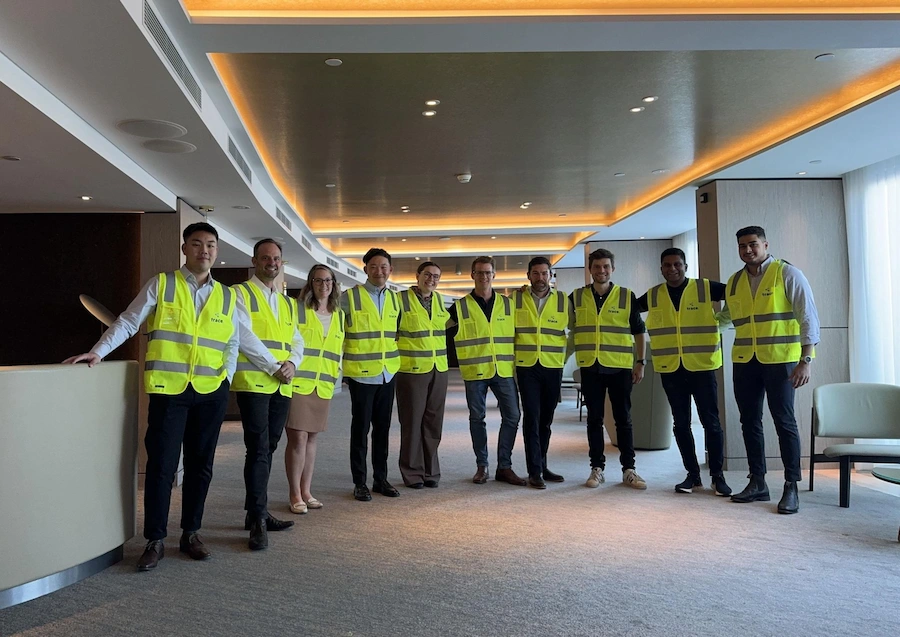Ready to turn insight into action?
We help organisations transform ideas into measurable results with strategies that work in the real world. Let’s talk about how we can solve your most complex supply chain challenges.

Private equity firms are continually on the hunt for opportunities to acquire, transform, and exit businesses with maximised returns. A crucial aspect of this process involves optimising supply chain operations, which can be a significant driver of value creation. Trace Supply Chain Consultants are experts in this field, offering tailored solutions that enhance operational efficiency and reduce costs, thus improving the overall investment proposition.
This article delves into the various ways in which Trace Supply Chain Consultants can support private equity firms throughout the entire life cycle of an acquisition, from due diligence to exit.

Acquisition: Comprehensive Supply Chain and Inventory Due Diligence
The acquisition phase is critical for private equity firms. During this phase, thorough due diligence is necessary to understand the target company’s strengths, weaknesses, and potential areas for improvement. Trace Supply Chain Consultants bring their expertise to the table by conducting comprehensive supply chain and inventory due diligence.
Supply Chain Due Diligence
Supply chain due diligence involves a detailed analysis of the target company’s supply chain processes, identifying inefficiencies, risks, and opportunities. Trace Consultants assess key areas such as supplier performance, logistics, warehousing, and distribution networks. By evaluating these components, they provide private equity firms with a clear picture of the supply chain’s health and potential risks, enabling informed decision-making.
Inventory Due Diligence
Inventory due diligence is another critical aspect that Trace Consultants focus on. They analyse inventory levels, turnover rates, and demand forecasting accuracy. This analysis helps private equity firms understand the efficiency of the target company’s inventory management and identify opportunities for optimisation. Accurate inventory assessments can reveal potential cost savings and highlight areas for improvement.
Transformation: Rationalisation of Suppliers, Infrastructure, and Assets
Once the acquisition is complete, the transformation phase begins. This phase aims to streamline operations, reduce costs, and enhance overall performance. Trace Supply Chain Consultants play a pivotal role in this transformation by focusing on rationalising suppliers, infrastructure, and assets.
Supplier Rationalisation
Supplier rationalisation involves consolidating the supplier base to achieve better terms, reduce costs, and improve supply chain efficiency. Trace Consultants work closely with the target company to identify redundant or underperforming suppliers. By negotiating better contracts and establishing strategic partnerships, they help private equity firms achieve significant cost savings while maintaining or improving service quality.
Infrastructure and Asset Rationalisation
Optimising infrastructure and assets is another key area where Trace Consultants add value. They assess the target company’s facilities, equipment, and technology to identify underutilised or obsolete assets. By rationalising these assets, Trace Consultants help streamline operations, reduce maintenance costs, and free up capital for reinvestment. This process ensures that the target company operates with optimal efficiency, contributing to improved profitability.
Improving Forecasting and Inventory Optimisation
Effective forecasting and inventory management are crucial for maintaining a balanced supply chain. During the transformation phase, Trace Supply Chain Consultants focus on enhancing these aspects to ensure that the target company operates efficiently and meets customer demands.
Improving Forecasting Accuracy
Accurate forecasting is essential for aligning supply with demand, reducing excess inventory, and minimising stockouts. Trace Consultants leverage advanced forecasting techniques and tools to improve the target company’s demand planning. By analysing historical data, market trends, and customer behaviour, they develop more accurate forecasts that enable better decision-making and planning.
Inventory Optimisation
Inventory optimisation involves balancing inventory levels to meet customer demand while minimising carrying costs. Trace Consultants use sophisticated inventory optimisation models to determine the optimal inventory levels for different products. By implementing these models, they help private equity firms reduce excess inventory, improve cash flow, and enhance overall supply chain efficiency.
Procurement and Supply Planning
Efficient procurement and supply planning are critical for ensuring a smooth and cost-effective supply chain. Trace Supply Chain Consultants offer expertise in these areas, helping private equity firms enhance procurement processes and optimise supply planning.
Enhancing Procurement Processes
Trace Consultants work closely with the target company’s procurement team to streamline processes and achieve cost savings. They assess current procurement practices, identify inefficiencies, and implement best practices. This includes leveraging technology for automated procurement, negotiating better contracts, and establishing strategic supplier relationships. By enhancing procurement processes, Trace Consultants help private equity firms achieve better pricing, improved supplier performance, and reduced risks.
Optimising Supply Planning
Supply planning involves coordinating the production and distribution of goods to meet customer demand efficiently. Trace Consultants develop robust supply planning strategies that align with the target company’s business goals. They analyse demand patterns, production capacities, and lead times to create optimal supply plans. These plans ensure that the right products are available at the right time, minimising stockouts and excess inventory.
Leveraging Procurement Spend Analytics
A powerful method to achieve rapid cost reduction in procurement is through the use of spend analytics, leveraging benchmarks and artificial intelligence (AI). Trace Consultants employ advanced spend analytics tools that provide deep insights into procurement patterns and expenditures. By benchmarking these against industry standards, they can identify discrepancies and opportunities for cost reduction. AI further enhances this process by uncovering hidden inefficiencies and predicting future spending trends, enabling more strategic decision-making. This data-driven approach helps private equity firms quickly realise significant savings, improve negotiation leverage, and optimise their procurement strategies for sustained financial benefits.
Leveraging Better Technology
In today’s digital age, leveraging advanced technology is essential for maintaining a competitive edge. Trace Supply Chain Consultants help private equity firms harness the power of technology to enhance supply chain operations.
Implementing Advanced Planning Systems
Advanced planning systems (APS) are powerful tools that enhance forecasting, inventory optimisation, and supply planning. Trace Consultants assist private equity firms in selecting and implementing APS solutions tailored to the target company’s needs. These systems provide real-time data, advanced analytics, and decision support tools that improve overall supply chain performance.
Embracing Automation and Digitalisation
Automation and digitalisation are key drivers of efficiency in modern supply chains. Trace Consultants identify opportunities for automating manual processes, reducing human error, and improving productivity. This includes implementing robotic process automation (RPA), Internet of Things (IoT) solutions, and digital dashboards for real-time monitoring and reporting. By embracing automation and digitalisation, private equity firms can achieve significant cost savings and operational efficiencies.
Exit: Maximising Value and Ensuring a Smooth Transition
The exit phase is the culmination of the private equity investment cycle. During this phase, it is crucial to maximise the value of the transformed company and ensure a smooth transition for the new owners. Trace Supply Chain Consultants provide invaluable support during this phase.
Showcasing Operational Improvements
Trace Consultants help private equity firms showcase the operational improvements achieved during the transformation phase. This includes providing detailed reports, performance metrics, and case studies that highlight cost savings, efficiency gains, and enhanced customer satisfaction. These success stories enhance the company’s attractiveness to potential buyers and increase its market value.
Ensuring a Smooth Transition
A smooth transition is essential for maintaining business continuity and preserving the value created during the investment period. Trace Consultants work closely with the target company’s management team and the new owners to ensure a seamless handover. This involves transferring knowledge, providing training, and supporting the implementation of best practices. By ensuring a smooth transition, Trace Consultants help secure the long-term success of the target company.
Partnering with Trace Supply Chain Consultants
Private equity firms face numerous challenges throughout the acquisition, transformation, and exit phases. By partnering with Trace Supply Chain Consultants, they can navigate these challenges effectively and maximise the value of their investments. From comprehensive due diligence to supplier rationalisation, infrastructure optimisation, and leveraging advanced technology, Trace Consultants offer tailored solutions that drive operational efficiency, reduce costs, and enhance overall performance.
For private equity firms looking to achieve superior returns and build sustainable, high-performing companies, Trace Supply Chain Consultants provide the expertise and support needed to succeed in today’s competitive market. Partnering with Trace means investing in a future of optimised supply chain operations and maximised investment value.
Ready to turn insight into action?
We help organisations transform ideas into measurable results with strategies that work in the real world. Let’s talk about how we can solve your most complex supply chain challenges.









